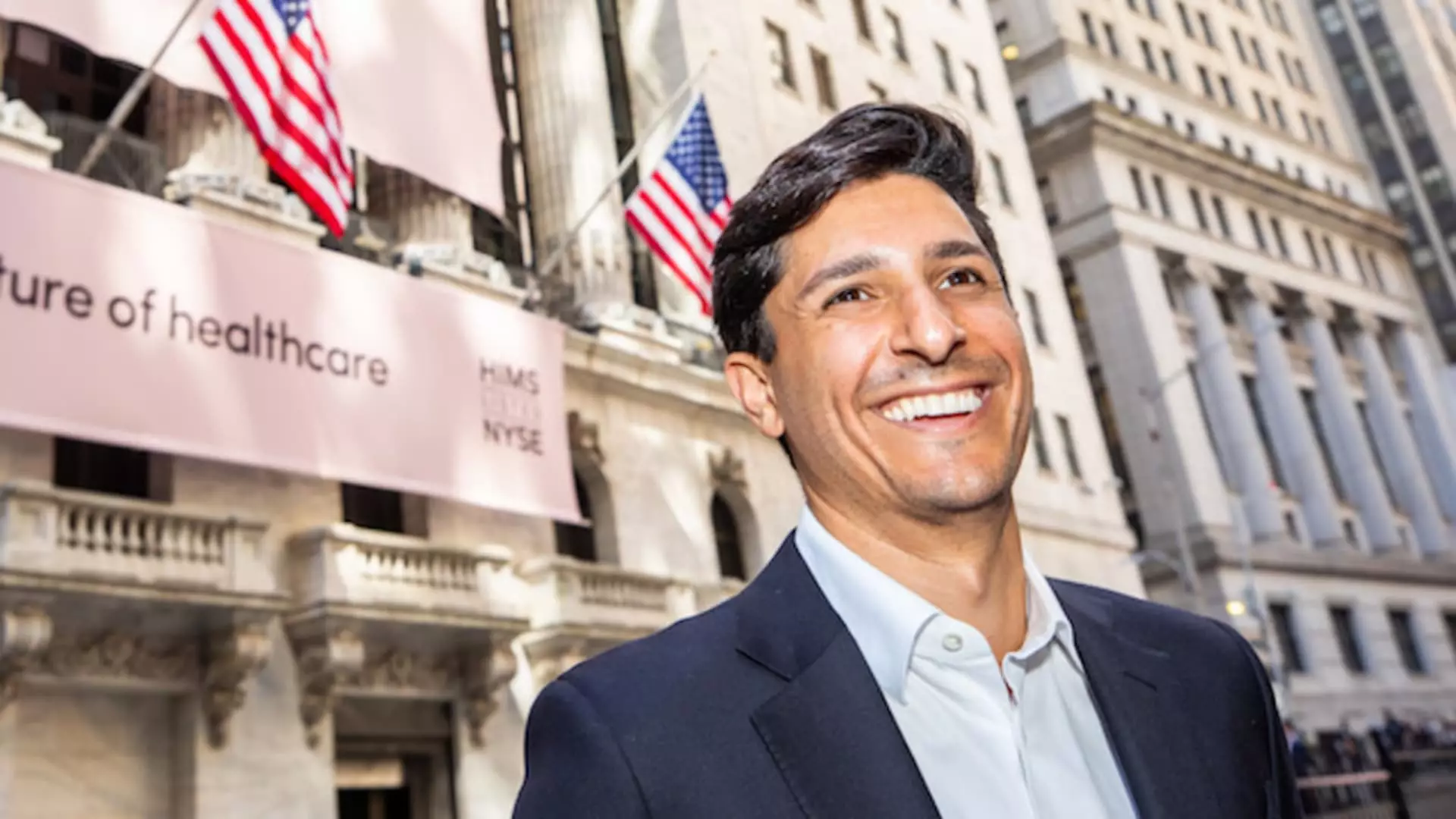In recent years, the intersection of corporate interests and political engagements has garnered significant public attention, particularly in the realm of healthcare. One striking example is Hims & Hers Health, which made headlines after donating $1 million to the inauguration fund of President-elect Donald Trump. This move aligns the company with a broader trend among tech firms eager to establish rapport with the incoming administration. Such actions raise important questions about the motivations behind corporate donations and their potential implications for public health policy.
Hims & Hers offers an array of direct-to-consumer treatments that address various health issues, including erectile dysfunction, hair loss, and weight management. Its rapid ascent in the digital health sector can largely be attributed to its innovative telehealth services, particularly the popularity of its weight loss program. The company’s decision to donate to Trump’s inaugural fund reflects not only a desire to engage with the new government but also suggests a strategic maneuver to align itself with policy-makers who could impact regulatory environments affecting their business.
This method of political engagement is not unique to Hims & Hers. Other prominent technology companies, such as OpenAI and Meta, have made similar contributions, signaling a collective effort by major players in healthcare and tech to cultivate a favorable operating climate under the new administration. The motivations behind these donations seem partly rooted in the hope of protecting their interests and influencing healthcare reforms that could shape market conditions.
A significant aspect of Hims & Hers’ business model is its venture into compounded semaglutide, a generic form of the active ingredient in Novo Nordisk’s weight loss medications, Ozempic and Wegovy. Given that these brand-name medications can cost around $1,000 per month without insurance, compounded alternatives present a more affordable option for consumers. The company’s timing—launching its weight loss program just before the inauguration—hints at a calculated strategy to position itself favorably amidst potential shifts in healthcare regulation.
However, there is ambiguity surrounding the future of compounded GLP-1 medications in the U.S. regulatory landscape. Key figures in the Trump administration, such as Robert F. Kennedy Jr. and Dr. Marty Makary, have provided mixed signals regarding the use of GLP-1s. While Kennedy has called for lifestyle changes as a primary response to obesity—acknowledging that GLP-1s have a role—Makary has a complex relationship with the industry through his past affiliation with the telehealth company Sesame, which prescribes these medications.
Elon Musk’s vocal support for making these medications more accessible further complicates the discourse. Musk’s resonant remarks about improving public health through low-cost alternatives underline the tension between corporate profit-seeking and genuine healthcare improvement.
The convergence of corporate influence and political donations has significant implications for public health policy. As companies like Hims & Hers attempt to navigate the regulatory landscape, their lobbying efforts could skew policies that prioritize profit over public interest. The balance of power between healthcare corporations and regulatory agencies becomes even more delicate when considering the potential impact on the accessibility and affordability of essential medications.
Corporate donations could risk creating a dynamic where the public interest is thwarted in favor of corporate agendas. The potential influence of companies on legislation related to health treatments raises ethical questions about the integrity of policymakers and the decision-making processes they engage in. Ultimately, there is a vital need for transparency and accountability to ensure that public health priorities remain paramount.
The donation from Hims & Hers Health to President Trump’s inauguration fund serves as a poignant reminder of the intricate relationships between corporations and politics in the healthcare sector. While the organization’s strategic alignment with policymakers may offer short-term gains, the broader implications of such actions could reverberate through the healthcare system for years to come. As corporate interests continue to intersect with public health, stakeholders, including policymakers and consumers, must remain vigilant in safeguarding the integrity of healthcare practices and ensuring that the guiding principles of public health are not overshadowed by financial motivations.

